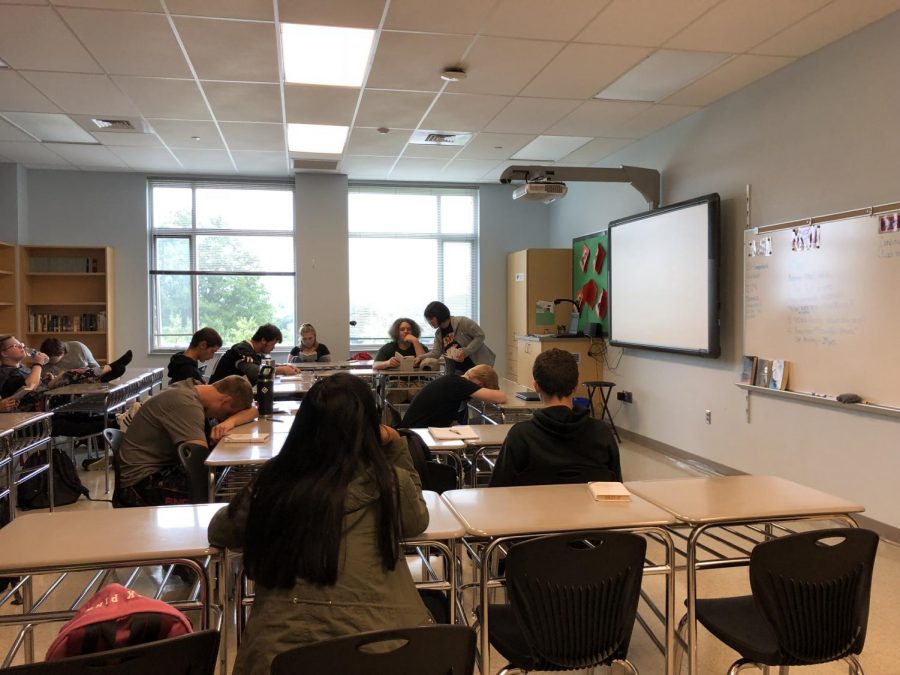Kirkland joins tribe after teaching in Japan
Kirkland helps students during class.
September 27, 2018
New teacher Randi Kirkland joins our tribe for one semester teaching English 12.
Before Kirkland came to Linganore, she taught in Japan for five years for the Department of Defense. Her husband was active in the military, so their family has moved six times in the past 12 years. Her family has lived in California, Nebraska, Maryland, Ohio, and two military bases in Japan.
The Department of Defense teachers teach in schools or military bases and support soldiers and troops in the military and their family. Everyone in the D.O.D is from the U.S.
Kirkland’s family is happy to be in Maryland because family is much closer. Kirkland is also ecstatic because this will be her family’s last time moving because her husband has taken a long-term position at Fort Detrick.
Kirkland has two children who are twins in 8th grade and attend Monocacy Middle. Her daughter, being more social, has adapted to the many moves easily, while her son, being more reserved, is happy that this is their last move.
“They’ve adapted very easily to being in Japan but they’re happy to be back in the US where we’re only four hours away from family,” said Kirkland.
When Kirkland has free time, she loves to read, go see plays, and create recipes in her kitchen. She also loves music and dancing, especially to Bruno Mars.
One of the adventures Kirkland and her family had was go to Bali for Christmas. Her and her husband even stole (with permission of course) the Christmas tree in the lobby of the hotel so her children could wake up to a Christmas tree in the morning.
Kirkland has found that teaching at Linganore is similar, but different. Since she taught at a military base, all of the students spoke English, but there were more rules. For example, students and teachers are only allowed to drink water, and it had to be out of clear containers. Gum and hats were also not allowed.
Another difference is that the students came from all over the world. Since they all have military parents and have lived on other bases, they did not grow up near each other.
Kirkland describes the greatest difference between Japan and the United States is the differing crime levels. Overall Japan is much safer than the country of United States. There are stricter gun laws and very little crime. Families often leave their doors unlocked and let their preschool aged children walk to school alone.
People in Japan treat others like family and know it is “their job” to protect each other. Although Kirkland’s children have adapted to moving easily, the biggest change they have is to remember to lock their doors.
If she had the chance to choose to live in Japan or America for the rest of her life with family as close or far as she wanted, she’d choose America. Although she’s had a once in a lifetime opportunity of living and teaching in Japan, home is home.
“Mrs. Kirkland is a great teacher. She’s a great motivator but a hard grader. She’s really hands on which helps a lot of people in my class learn better,” said senior Jackson Ambush.
Kirkland has a huge tattoo on her right arm of a Native American chief. It symbolizes family and her love for Native American culture.
Despite living in Japan for five years, Kirkland is unafraid to admit that she is not fluent in Japanese. However, she is able to say common phrases. Kirkland admits that her children are better Japanese speakers than she and her husband.
Throughout living and teaching in Japan, one of the most valuable lessons Kirkland has learned is to treat everyone like family.



